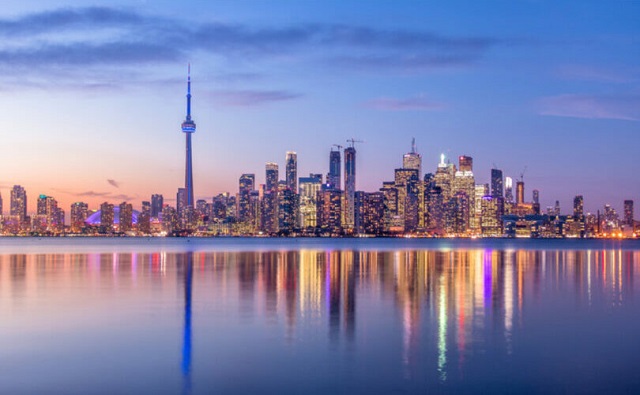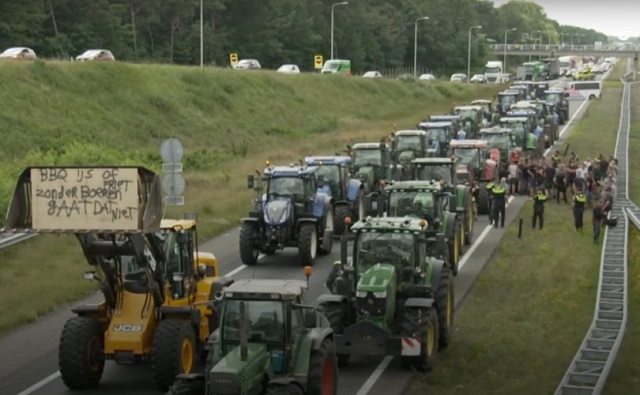Health
In Pursuit of Providing World Class Healthcare

Originally published in the Red Deer Advocate January 17, 2018
By Iaian Park, CEO Red Deer Regional Health Foundation
The Government of Alberta recently released its healthcare priority spending list. Of note was that the Red Deer Regional Hospital was not included on that list.
Firstly, as a Central Albertan I am disappointed: I feel for the physicians, nurses and other healthcare workers looking for tools to do their jobs to their maximum potential. I feel for people facing wait times in excess of 10 hours while trying to access medical treatment. I feel for patients who must travel great distances to get the healthcare those in major cities already take for granted. I could go on.
However, as the Chief Executive Officer of the only major charity funding the Red Deer Hospital, I have another perspective. I see this as an opportunity…a responsibility… to step up the funding we provide to the Red Deer Regional Hospital. Our Board of Directors recently made a minor change to our vision so that it is now an action statement:
“Dedicated to the pursuit of providing world class healthcare”
These volunteer Board members, those who set the tone for our organization, have doubled down on their commitment. They chose to add “Dedicated to the pursuit of” to what was previously “World class healthcare for Central Albertans”. They are increasing their resolve to fulfill our mission to the hospital.
New equipment, services and programs need to be added to the hospital, of that there is no question. However, there are plenty of current programs, services and pieces of equipment that can be improved, modified or upgraded. Central Albertans can help to make sure that what we do have is the best it can be.
You, your family, your neighbors and fellow Central Albertans can ensure that healthcare workers in the Red Deer Regional Hospital have the best equipment for the programs and services they currently provide. You can make sure that our healthcare workers come to work knowing that the equipment they have is the best available so they can provide world class healthcare.
Here is a recent example of a system that works:
Dr. Horne of Laboratory Services at the Red Deer Regional Hospital said: “We would never be able to purchase this equipment without funding from the Festival of Trees and the Red Deer Regional Health Foundation.”
Laboratory Services was the recipient this year of Festival of Trees proceeds. Given Dr. Horne’s current department budget, there would not be enough money to purchase the equipment provided by Festival – not in the short term, and likely not in the long term.
So thanks to you, Central Alberta, you have funded equipment for the Red Deer Hospital that likely would have never otherwise been purchased. You have made an impact on the care Central Albertans receive – potentially saving lives! Your support has made it possible for staff in the lab to process samples more efficiently and provide results quicker to our physicians. This improved efficiency will save lives.
You can continue to ensure that the Red Deer Regional Hospital has access to the best equipment for the current services and programs they run. You can donate funds or time to the Red Deer Regional Health Foundation. Either way, you will be contributing to the pursuit of providing world class healthcare for Central Albertans.
On behalf of the Board of Directors, Volunteers and Staff of the Red Deer Regional Health Foundation, I thank you for funding or volunteering with us in the past, and I thank you for considering our Foundation in the future. You can make an impact on the healthcare provided to Central Albertans.
Ian Park
For more information on how to donate or volunteer please call 403.343.4773, email [email protected], or visit www.rdrhfoundation.com.
Read more stories from Todayville.com.
Addictions
Why can’t we just say no?

From the Frontier Centre for Public Policy
Drug use and violence have become common place in hospitals. Drug-addicted patients openly smoke meth and fentanyl, and inject heroin. Dealers traffic illicit drugs. Nurses are harassed, forced to work amidst the toxic fumes from drugs and can’t confiscate weapons. In short, according to one nurse, “We’ve absolutely lost control.”
“Defining deviancy down” is a cultural philosophy that emerged in the United States during the 1990s.
It refers to society’s tendency to adjust its standards of deviancy “down,” so that behaviours which were once unacceptable become acceptable. Over time, this newly- acceptable behaviour can even become society’s norm.
Of course, the converse must also be true — society looks down on those who label social behaviours “wrong,” deeming them moralistic, judgemental or simply out of touch with the realities of modern life.
Thirty years later, this philosophy is entrenched in British Columbia politics and policies. The province has become a society that cannot say “no” to harmful or wrong behaviours related to drug use. It doesn’t matter if you view drug use as a medical issue, a law-and-order issue, or both – we have lost the ability to simply say “no” to harmful or wrong behaviour.
That much has become abundantly clear over the past two weeks as evidence mounts that BC’s experiment with decriminalization and safe supply of hard drugs is only making things worse.
A recently-leaked memo from BC’s Northern Health Authority shows the deleterious impact these measures have had on BC’s hospitals.
The memo instructs staff at the region’s hospitals to tolerate and not intervene with illegal drug use by patients. Apparently, staff should not be taking away any drugs or personal items like a knife or other weapons under four inches long. Staff cannot restrict visitors even if they are openly bringing illicit drugs into the hospital and conducting their drug transactions in the hallways.
The public was quite rightly outraged at the news and BC’s Health Minister Adrian Dix quickly attempted to contain the mess by saying that the memo was outdated and poorly worded.
But his facile excuses were quickly exposed by publication of the very clearly worded memo and by nurses from across the province who came forward to tell their stories of what is really happening in our hospitals.
The President of the BC Nurses Union, Adriane Gear, said the issue was “widespread” and “of significant magnitude.” She commented that the problems in hospitals spiked once the province decriminalized drugs. In a telling quote, she said, “Before there would be behaviours that just wouldn’t be tolerated, whereas now, because of decriminalization, it is being tolerated.”
Other nurses said the problem wasn’t limited to the Northern Health Authority. They came forward (both anonymously and openly) to say that drug use and violence have become common place in hospitals. Drug-addicted patients openly smoke meth and fentanyl, and inject heroin. Dealers traffic illicit drugs. Nurses are harassed, forced to work amidst the toxic fumes from drugs and can’t confiscate weapons. In short, according to one nurse, “We’ve absolutely lost control.”
People think that drug policies have no impact on those outside of drug circles – but what about those who have to share a room with a drug-smoking patient?
No wonder healthcare workers are demoralized and leaving in droves. Maybe it isn’t just related to the chaos of Covid.
The shibboleth of decriminalization faced further damage when Fiona Wilson, the deputy chief of Vancouver’s Police Department, testified before a federal Parliamentary committee to say that the policy has been a failure. There have been more negative impacts than positive, and no decreases in overdose deaths or the overdose rate. (If such data emerged from any other healthcare experiment, it would immediately be shut down).
Wison also confirmed that safe supply drugs are being re-directed to illegal markets and now account for 50% of safe supply drugs that are seized. Her words echoed those of BC’s nurses when she told the committee that the police, “have absolutely no authority to address the problem of drug use.”
Once Premier David Eby and Health Minister Adrian Dix stopped denying that drug use was occurring in hospitals, they continued their laissez-faire approach to illegal drugs with a plan to create “safe consumption sites” at hospitals. When that lacked public appeal, Mr. Dix said the province would establish a task force to study the issue.
What exactly needs to be studied?
The NDP government appears to be uninformed, at best, and dishonest, at worst. It has backed itself into a corner and is now taking frantic and even ludicrous steps to legitimize its experimental policy of decriminalization. The realities that show it is not working and is creating harm towards others and toward institutions that should be a haven for healing.
How quickly we have become a society that lacks the moral will – and the moral credibility – to just to say “no.”
Susan Martinuk is a Senior Fellow with the Frontier Centre for Public Policy and author of Patients at Risk: Exposing Canada’s Health-care Crisis.
Addictions
City of Toronto asks Trudeau gov’t to decriminalize hard drugs despite policy’s failure in BC

From LifeSiteNews
“Criminalizing the possession of drugs for personal use leads to discrimination and stigma, and contributes to people hiding their drug use from their physicians, friends, family, colleagues, and community”
The City of Toronto is asking Prime Minister Justin Trudeau’s government to decriminalize hard drugs.
In a March letter, Toronto city officials appealed to the Trudeau government to legalize all quantities of crack, cocaine, heroin, meth, and other hard drugs, despite warnings that it will bring increased chaos and violence to the city. Its reasoning is that people look askance at drug abuse and drug abusers, who then attempt to hide their habit.
“The evidence demonstrates that criminalizing the possession of drugs for personal use leads to discrimination and stigma, and contributes to people hiding their drug use from their physicians, friends, family, colleagues, and community,” the document claimed.
The letter, penned by Medical Officer of Health Dr. Eileen de Villa, City Manager Paul Johnson, and Chief of Police Myron Demkiw requested that the Trudeau government decriminalize hard drugs for young people as well as adults. The application places no limit on the quantity of drugs which would be legally obtained.
Toronto is already seeing a rise in crime since the election of Toronto mayor Olivia Chow. Canadians have pointed out that Toronto is dealing with several issues, without adding the decriminalization of hard drugs,
“Trudeau must reject Toronto’s application to allow public use of crack, cocaine, heroin, & other hard drugs,” Conservative Party leader Pierre Poilievre wrote on X, formerly known as Twitter.
“His dangerous policy cannot bring the same chaos, death & destruction to more Canadian cities,” he added.
Trudeau must reject Toronto's application to allow public use of crack, cocaine, heroin, & other hard drugs.
His dangerous policy cannot bring the same chaos, death & destruction to more Canadian cities. pic.twitter.com/hG5h9lsWPq
— Pierre Poilievre (@PierrePoilievre) May 1, 2024
Poilievre’s condemnation was echoed by Ontario Premier Doug Ford who promised, “I will fight this tooth and nail. This is the wrong way to go.”
Poilievre further explained that Canadians have already seen the dystopian effects of the decriminalization of hard drugs in British Columbia, which “has caused chaos in hospitals, playgrounds, parks, and public transport.”
READ: British Columbia should allow addicts to possess even more drugs, federal report suggests
Beginning in early 2023, Trudeau’s federal policy, in effect, decriminalized hard drugs on a trial-run basis in British Columbia.
Under the policy, the federal government began allowing people within the province to possess up to 2.5 grams of hard drugs without criminal penalty, but selling drugs remained a crime.
The province’s drug policy has been widely criticized, especially after it was found that the province broke three different drug-related overdose records in the first month the new law was in effect.
Last week, BC Premier David Eby finally admitted that the province’s ‘safe supply’ program was a failure and called on the Trudeau government to reverse the program. However, Trudeau has yet to respond to the province’s appeal for help.
“Safe supply“ is the term used to refer to government-prescribed drugs that are given to addicts under the assumption that a more controlled batch of narcotics reduces the risk of overdose. Critics of the policy argue that giving addicts drugs only enables their behavior, puts the public at risk, and disincentivizes recovery from addiction. Where “safe supply” has been implemented, it has not reduced the number of overdose deaths. It has sometimes even increased it.
The effects of decriminalizing hard drugs in parts of Canada have been exposed in Aaron Gunn’s recent documentary Canada is Dying, and in the British Telegraph journalist Steven Edginton’s mini-documentary, Canada’s Woke Nightmare: A Warning to the West.
Gunn says he documents the “general societal chaos and explosion of drug use in every major Canadian city.”
“Overdose deaths are up 1,000 percent in the last 10 years,” he said in his film, adding that “[e]very day in Vancouver four people are randomly attacked.”
Even Liberals have begun admitting that Trudeau’s drug program has not helped addicts but only added to their problems.
In April, Liberal MP Dr. Marcus Powlowski testified that violence from drug users has become a problem in Ottawa, especially in areas near the so-called “safe supply” centres which operate within blocks of Parliament Hill.
“A few months ago I was downtown in a bar here in Ottawa, not that I do that very often, but a couple of colleagues I met up with, one was assaulted as he was going to the bar, [and] another one was threatened,” said Powlowski.
“Within a month of that, I was returning down Wellington Street from downtown, the Rideau Centre, and my son who is 15 was coming after me,” he continued. “It was nighttime, and there was someone out in the middle of the street, yelling and screaming, accosting cars.”
RELATED: Liberal MP blasts Trudeau-backed ‘safe supply’ drug programs, linking them to ‘chaos’ in cities
-

 Business4 hours ago
Business4 hours agoUN plastics plans are unscientific and unrealistic
-

 Brownstone Institute7 hours ago
Brownstone Institute7 hours agoThe Teams Are Set for World War III
-

 Education2 hours ago
Education2 hours agoSupport a young reader through the Tim Hortons Smile Cookie campaign
-

 Opinion5 hours ago
Opinion5 hours agoThe Climate-Alarmist Movement Has A Big PR Problem On Its Hands
-

 Addictions6 hours ago
Addictions6 hours agoWhy can’t we just say no?
-

 Opinion2 days ago
Opinion2 days agoClimate Murder? Media Picks Up Novel Legal Theory Suggesting Big Oil Is Homicidal
-

 Energy1 day ago
Energy1 day agoNet Zero’s days are numbered? Why Europeans are souring on the climate agenda
-

 Economy2 days ago
Economy2 days agoOttawa’s homebuilding plans might discourage much-needed business investment




